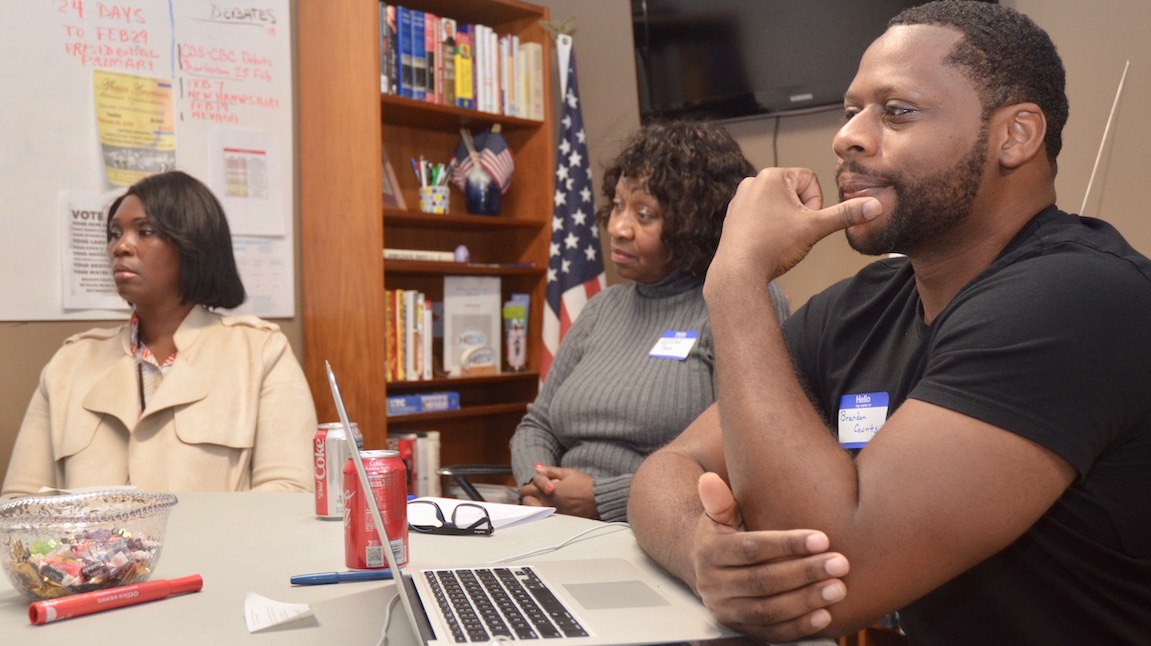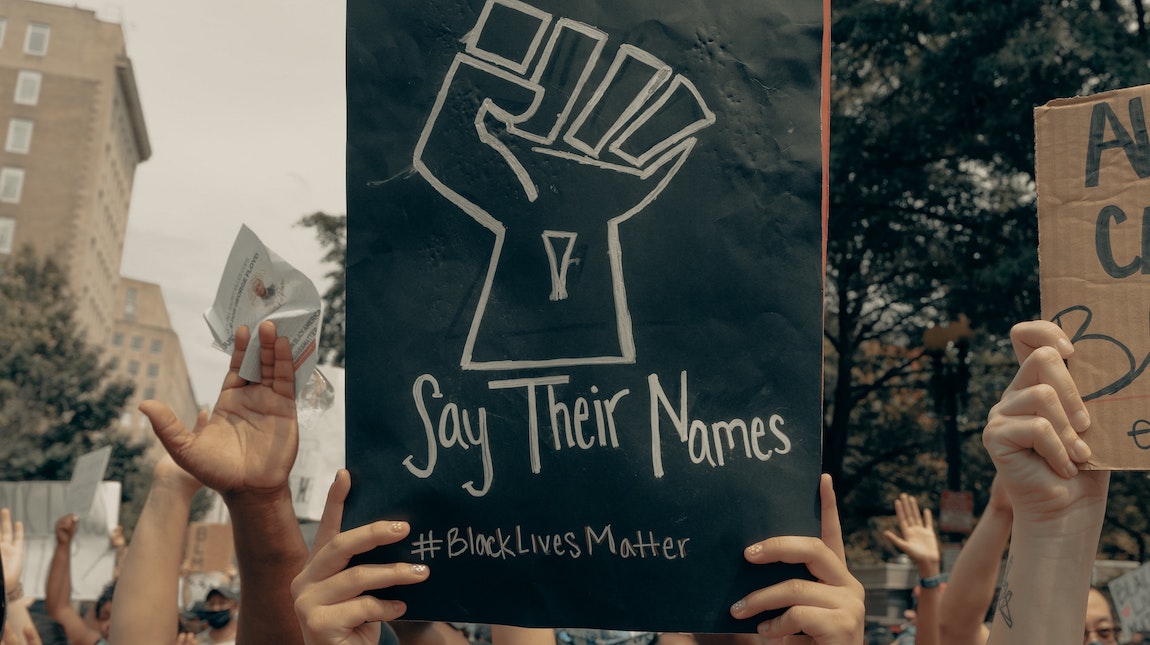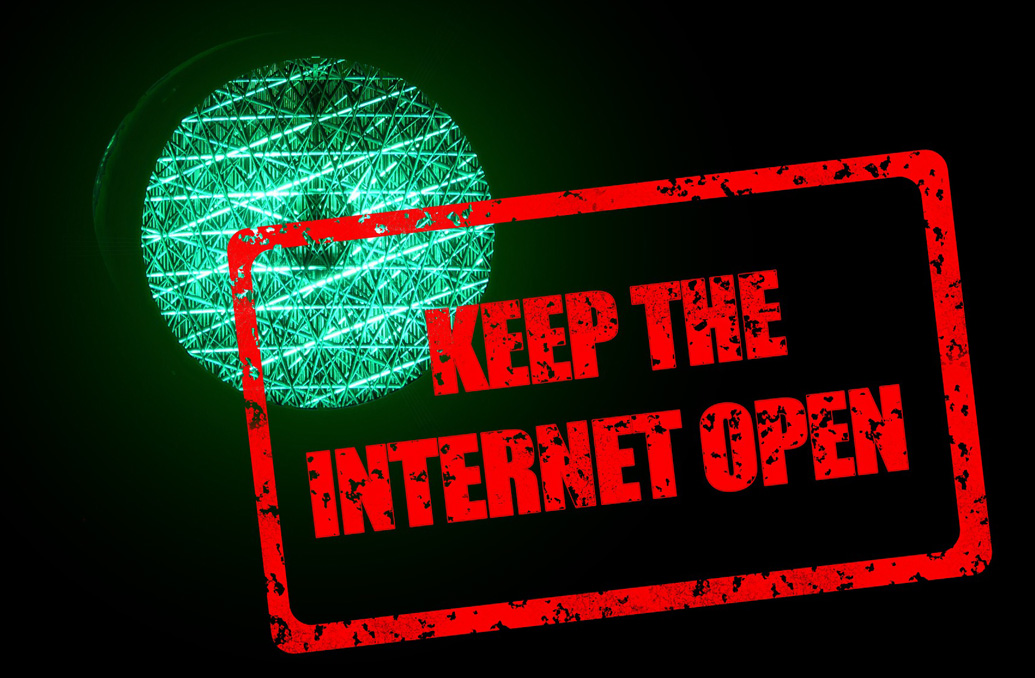Above Photo: Shakedra Jenerette, Alester Linton-Pryor and Brandon Counts
By V. Susan Hutchinson
Editor’s Note: On February 5 a small group of African American community activists and leaders came together at the Horry County Democratic Party Office (HCDP)in Conway for a candid discussion on issues affecting African Americans.
This article continues the series that began with HORRY COUNTY AFRICAN AMERICAN ISSUES FORUM: THE AGE OF TRUMP. For the list of participants please see HORRY DEMOCRATS HOST AFRICAN AMERICAN ISSUES FORUM. This article is based on 36:56 to 1:12:34 in the video.
Leadership and Voting The Black Agenda
The importance of voting, whether the Democratic party is the “salvation” for African Americans, and the morality of the Democratic party was discussed extensively in the Forum.
Reading from Dr. Martin Luther King Jr.’s book Where Do We Go From Here?, moderator Dameion Fowler pointed out that “Jobs are harder and costlier to create than voting roles.”
He then posed these questions: “What role should voting play in pushing forward a black agenda?” and “Should it play the most significant role or should it share significance with other methods?”
Shakedra Jenerette said voting is the most important factor. She noted that “for so long it has been so insignificant,” but suggested that if African American participation in the voting process dramatically increased, it would make African Americans “level” in their communities.
Fowler replied with remarks from Dr. Amos Wilson, who said the actions African Americans took to get the right to vote were more effective than the right to vote.
Brandon Counts responded, saying there are legislators who go against the wishes of the constituents and vote mainly in a way that gets them re-elected. The right people, with the right moral values, willing to hold positions that could damage their chances of staying in office, need to be elected.
Voters, he said, should be vocal in what they expect of their elected officials. He pointed out that in 2016, Sen. Lindsey Graham called candidate Donald Trump a racist, but when that didn’t poll well with Trump supporters in South Carolina, Graham changed his position to not offend Trump’s base.
Counts compared Graham’s position to that of Sen. Mitt Romney (R-UT), who despite intense pressure from Trump supporters and Republican Senate leadership, was the only Republican to vote to convict the president as the impeachment trial came to a close.
Alester Linton-Pryor reminded everyone that during the Civil Rights movement, Dr. King had a clear agenda with informed voters who knew exactly what Dr. King was marching for. Pryor said the Democratic party’s values are not clearly defined or vocalized for its supporters so they vote accordingly. Many assumptions, she said, are made on critical issues that are not clearly expressed by candidates.
“Where are our strong leaders?” Pryor asked, questioning what purpose it serves to vote without knowing exactly what or who you are voting for. It all comes back to having an “informed electorate,” she asserted.
“Having the right to vote is one thing,” observed Pastor Thomas Dixon, but exercising it is quite another. “Having somebody to vote for that’s going to follow through on what you are voting them in office for, is a whole other thing. Until we can fit all those pieces together, we will continue to lose,” he said.
Dixon predicted that low voter participation will persist along with voting people into office who voters think represent their interests, but who actually represent their own interests. As a result, he said, the people will continue to lose in all areas of social justice including healthcare, the environment, wages and education.
Dixon added elected officials work from a position of power, getting all the perks that come with that, while the people who voted for them get nothing in return.
“They get away with it because the voice of the people is silent,” Dixon said, quoting Frederick Douglass, who said “power concedes nothing without demand; it never has and never will.”
Verlene DeWitt contended that our legislators feel emboldened to support only a particular group of people and then convince their voters that it’s the right thing to do. “People are voting against their own best interests,” DeWitt said.
Democratic Salvation
Fowler then asked the question “Is the Democratic Party Our Salvation?”
DeWitt quickly responded that based on Republican attitudes and the party’s current direction, “in the current era” the Democratic party is the most promising for African Americans.
Noting that “salvation is a strong word,” but, unlike the Republican party, Brandon Counts said “the Democratic party has given minorities more of a platform to express their values.” Even though there is an African American senator from South Carolina, Tim Scott, Counts asked “what has he really done for African Americans in South Carolina?”
Fowler quoted Noam Chomsky, who said “The Republican party is the most dangerous organization in human history.” Fowler asked if there is any other organization that has been “almost singularly dedicated to the destruction of the human species?” and added if the participants would consider the Democratic party as dangerous as well due to their weakness in the face of the Republican party.
Counts said he does not consider the Democratic party as “the lesser of 2 evils”, and said he was a bit scared by Fowler’s comments. Observing that Republican ideologies differ from the Democratic party’s, he cautioned against playing into GOP talking points, where they refer to Democrats as evil. Counts added that Democrats continue to work to pass important legislation for African Americans and other minorities.
Pastor Dixon stated that anybody who votes against giving everyone an equal chance to get healthcare, or who won’t pass gun sense legislation that will save a life, or who keeps people from earning a living wage, is evil. This, he declared, makes the Republicans “the epitome of evil”.
Dixon said he prefers the term “repentance” instead of “salvation” when talking about Democrats, contending that the Democratic party “has done the African American community wrong for a long time and until there is repentance, we can’t move forward.”
The Morality of the Democratic Party
Fowler went on to list some of the ways the Democratic party has been complicit on policies that are limiting to African Americans and other minorities. We don’t want the perception of “good guy vs bad guy,” he said.
Fowler then asked, “What role do we play as a black community in pushing the Democratic party to where it needs to go as far as a policy agenda, a social justice agenda and a more moral agenda?”
Pastor Dixon stressed that the idea of repentance is key, explaining that you can’t move forward without acknowledging that you have fault. African Americans, he said, are still a force, but they will no longer be taken for granted. Dixon said he saw a lot of wrongdoing from the party during his 2016 run for the Senate. People tend to paint over what Democratic legislators have done, and instead point a finger solely at the Republicans, he said.
African Americans, said Counts, are a definite force — if they vote. The South Carolina Democratic Party, he said, needs to have “a come to Jesus moment with the African American community.” The state party, he said, doesn’t do enough to sit down with identified leaders in the African American communities across the state to really understand their issues and what needs to be done to make improvements. These discussions need to happen all the time, not just at election time, Counts said.
Counts contended that reaching out to African American communities will go a long way toward the repentance that Pastor Dixon spoke about.
Counts added that older African Americans remember the struggles of the past and know that the fight continues today, but younger generations like Millennials and Generation Z, see it as “that was previous generation,” and are not paying enough attention to the political process.
Pastor Dixon added that this perception of the younger generation is why voter turnout is so low, noting that they did not have to go through the battle for blacks to vote without intimidation or suppression, so they tend to be apathetic about exercising their right to vote.
To Be Continued…
The discussion continues in:
Horry County African American Issues Forum: Education and The Racial Wealth Gap
Horry County African American Issues Forum: Reparations and Black Class Differences






